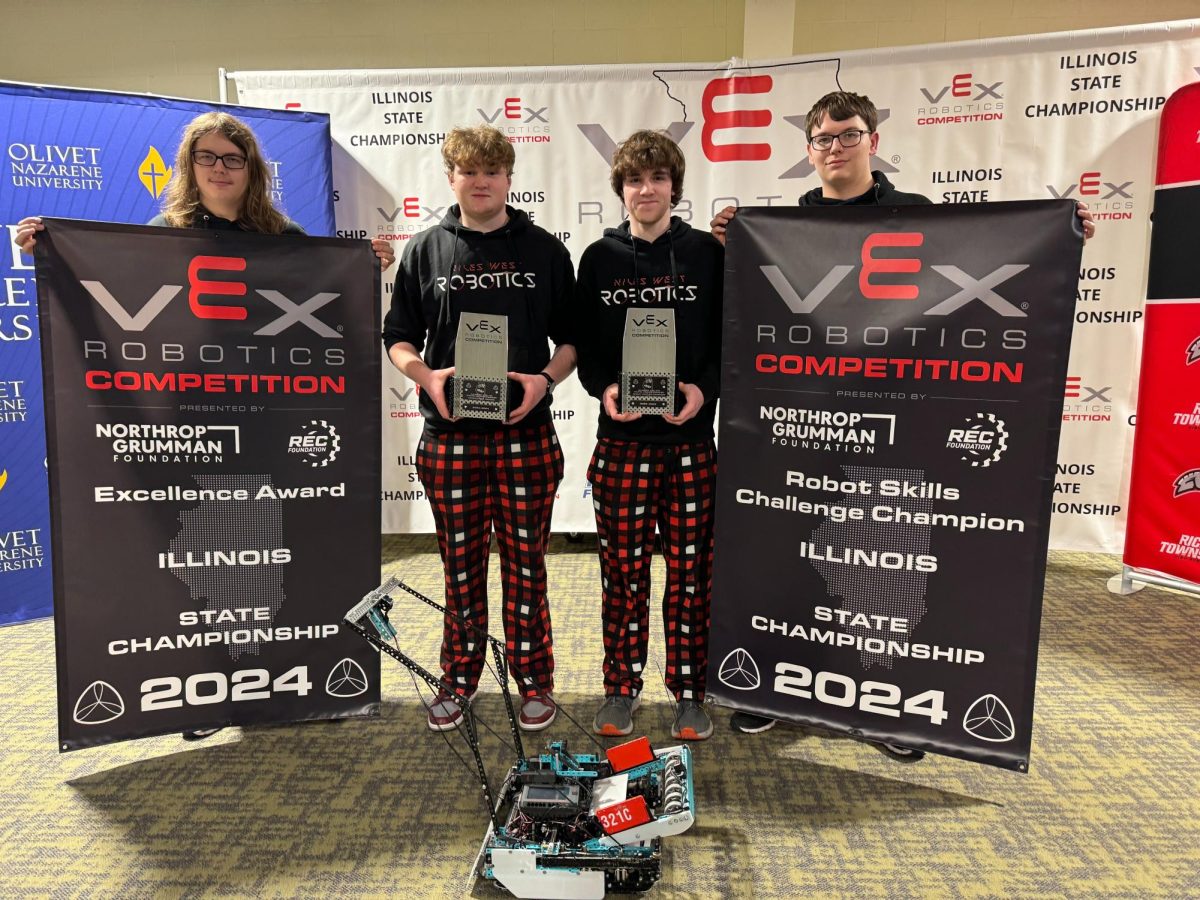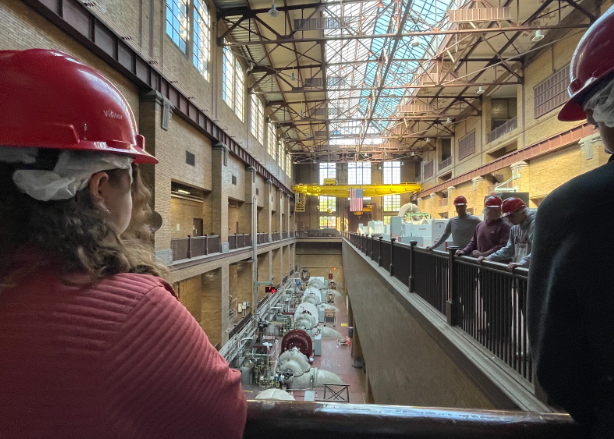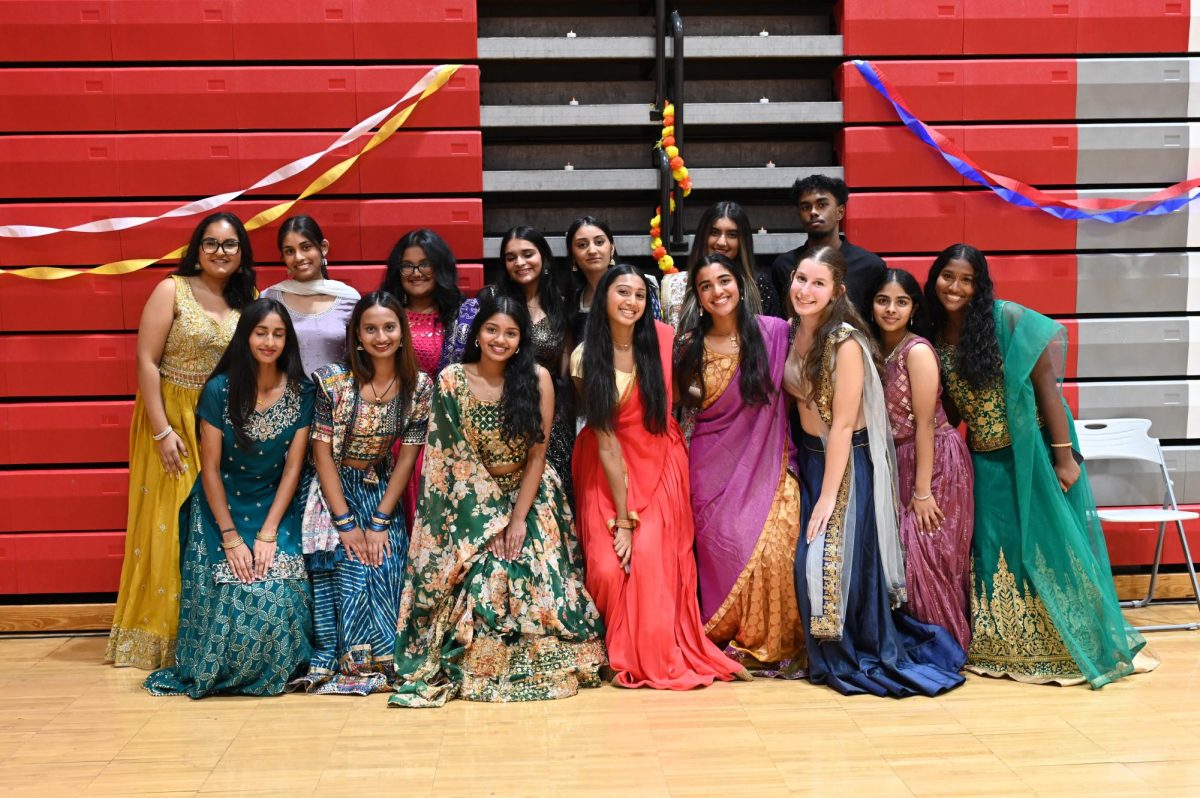Surrounded by gears and gadgets, the Niles West robotics teams 321C and 321A qualified for the Vex World Championship in Dallas, Texas. Team 321C includes seniors William Gayford, Keagan Heger, Hunter Van Mersbergen and Landon Van Mersbergen and Team 321A includes seniors Eleena Kopic and Kike Raheem juniors Andrew Thompson, Alex Wolski, Jacob Pagador and Grace Cherian. In the Illinois State Championship, team 321C won the Robotics Skills Championship and was recognized as the Excellence Award Winner.
The Vex Robotics Competition Over Under game, this year’s game, is played by a team’s robot scoring triballs into goals and includes challenges like fitting under an 11.6-inch pipe and being able to climb. The more goals scored, the more points gained. To prepare for this competition, teams make preparations in advance.
“To prepare, we made a 3D model of the robot. When finished, we put it in our basement. We used the field at school and our half field at home to code autonomous and practice driving. We did all this while writing our 500+ page engineering notebook. We probably spend around 25 hours per week working on robotics,” H. Van Mersbergen said.
While some may find robotics intimidating because of the skills needed to succeed, robotics coach Robert Foster believes that anyone can do it, as long as they have the right mindset.
“Students are often reluctant to check it out assuming all the kids are super smart coding nerds. The reality is that most of our students are just like everyone else and that coding is not as important as mechanical skills. They typically come in the door freshman year not knowing much. Maybe they used the VEX robot kits in middle school but that is the extent of their mechanical skill set. It’s what you are willing to learn from there that matters,” Foster said.
Other robotics members, including freshman Muhammad Junaid, found the success of the 321 C and 321 A teams inspirational.
“Seeing fellow Wolves make it so far [in the competition] and accomplish so much makes the future of robotics at West look bright,” Junaid said.
Foster thinks that what people fail to acknowledge about robotics is the team aspect of the competitions and how important working together is.
“Being able to communicate, being committed, and being able to function and contribute as a team member [is] just as important as one might expect for athletic teams,” Foster said. “We also need team leaders because that’s what makes a difference between a team that builds a robot that wins a match, from one that is the tournament champion for a regional competition.”








